Artists celebrate as Art Jakarta resumes after COVID hiatus
After a two-year COVID hiatus, one of Southeast Asia’s largest and oldest art fairs is back, sparking optimism about the recovery of the local arts scene.
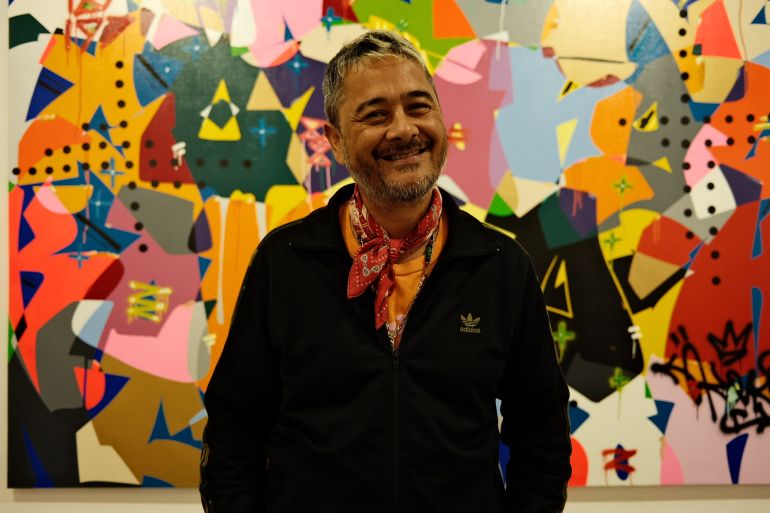
Jakarta, Indonesia – Two years since the last Art Jakarta was held, the fair is back and stronger than ever – with galleries, artists, collectors, and curious observers flocking to the Jakarta Convention Center.
The return of the fair, which began on Friday and is now in its 12th iteration, marks the first major art event in Indonesia since the pandemic began.
Keep reading
list of 4 itemsIndonesia’s Widodo urges Tesla to make its EVs in country
Indonesia’s Widodo hails ‘strong’ economy, rising global profile
Indonesian mothers fight for medical marijuana for their children
Its primary purpose is commercial – to connect artists, galleries, and other stakeholders with potential buyers.
More than 60 galleries from Indonesia and elsewhere in Asia are showing their collections at the fair. More than 500 artists will attend, and more than 25,000 visitors are expected.
“Indonesia is a superpower when it comes to art. It has strong output and a strong scene. It stayed intact and was able to re-establish itself and come back strong. Everyone is happy to be here,” Gil Schneider, consultant for Art Jakarta, said.
“The most important thing is to show the market is strong, and there is demand. Collectors are back, buying art. We are happy to see that sales are strong, and the market is back on its feet.”
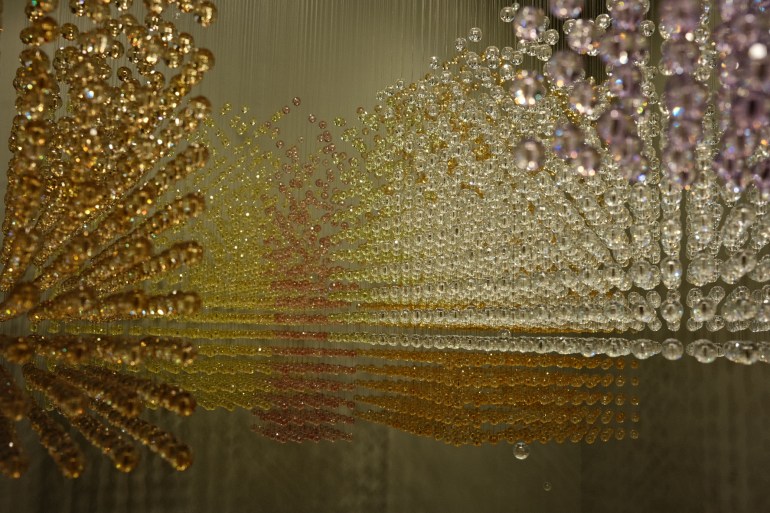
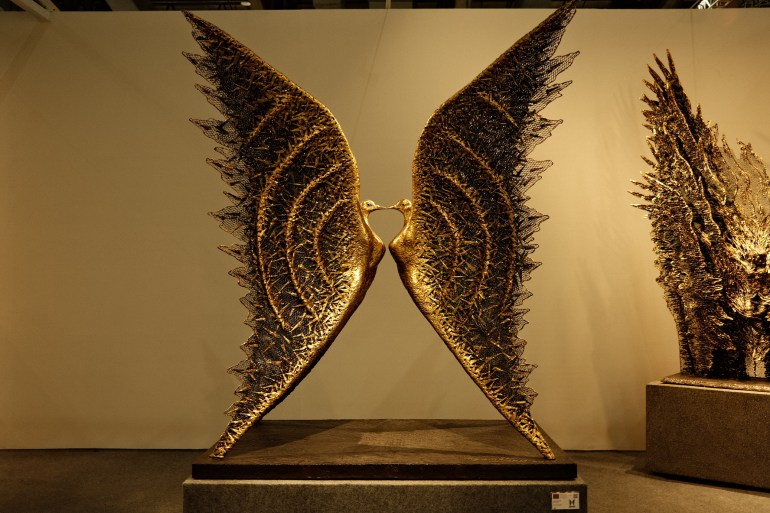
This year’s event also has a distinctly celebratory tone. It is a reunion for Indonesia’s established art world, a chance to reconnect, as the country’s creatives emerge from a difficult period.
“It’s not just the artists, but those who display art, like galleries and art management, everyone is excited to work together again. Slowly, we can see the situation is getting better,” said one of the artists at the fair, Depok-based artist Meliantha Muliawan.
Indonesia was hit hard by the pandemic. In mid-2021, the country became the global epicentre of the virus as the Delta variant took hold. Prolonged COVID-19 restrictions meant many galleries had to close their doors and show their collections online instead.
Esti Nurjadin, the owner of D Gallerie in south Jakarta, said she’s enthusiastic about showing her pieces in person again.
“This is the first big event for art, and it has made us very excited, after two years of everything being online. It was difficult for galleries,” she said. “For us, to be able to get to the point of transaction, we need to meet in person. Collectors want to see the art and experience it – rather than looking at it on a screen.”
One of the pieces she is displaying is by Indonesian artist Soni Irawan. Ten guitars are stuck to the wall, but the bodies of the instruments have been swapped out for briefcases.
“It is difficult to take a picture and show this on a screen. If you are here, you can see the depth, you can imagine: What would this look like in my home or office? Showing an artwork like this online will not have the same feel or grab people’s attention.”
D Gallerie is also displaying two large woven sculptures by Yogyakarta-based artist Nindityo Adipurnomo.
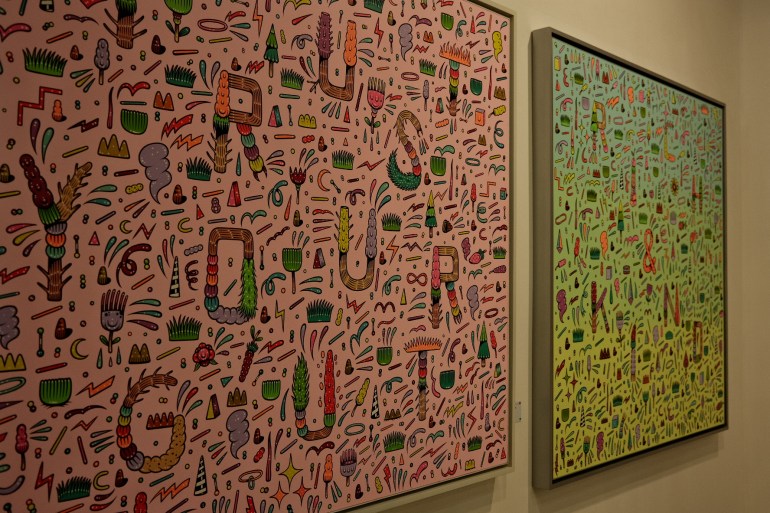
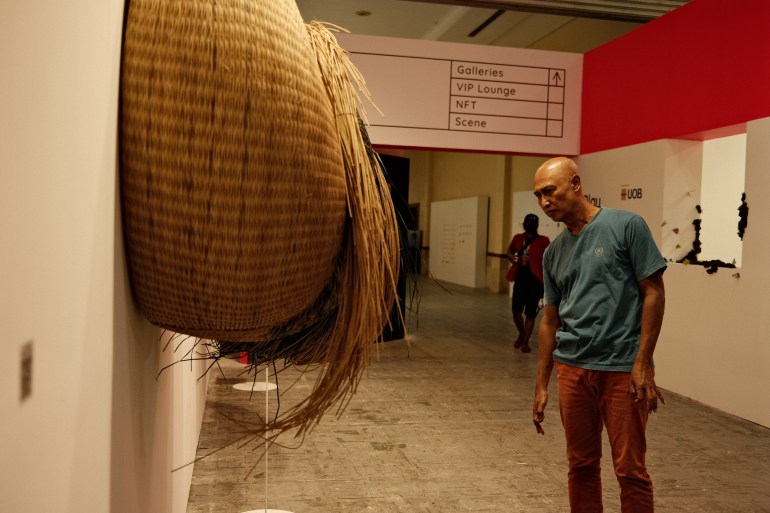
Understanding the artist’s concept and intention is difficult when the public can’t see the pieces in person, Adipurnomo told Al Jazeera. His works are intended to represent traditional Javanese hairstyles for women – and how the standard of beauty for women is, in many instances, dictated by men.
“This is about understanding masculinity and femininity. I’m still exploring that idea, it’s how I try to understand the male gaze,” he said. “With the medium of visual art, you need to meet people. You need them to experience the artwork.”
While many are celebrating a return to the way things were before, there’s also room for innovation not previously seen at the longstanding fair.
For the first time, non-fungible tokens (NFT) are on display and for sale.
NFTs are one-of-a-kind digital assets, usually paid for with cryptocurrency.
While much of the initial hype has died down, some in the art world still believe in its potential.
“Three years ago, no one was talking about NFTs. It is a child of the pandemic. Some collectors are interested, and some galleries are selling NFTs. We are responding to this trend in the market, and we need to see how it will develop over time,” Schneider said.
French artist Cyril Kongo, who has a studio in Bali, is best known for his graffiti on the streets of Paris, and later, for incorporating his graffiti aesthetic into collaborations with luxury brands, like Chanel and Hermes. This week, he is branching into NFTs for the first time – displaying a collection of 26 NFTs at the fair and selling them on NFT marketplace OpenSea.
“This new world, digital art, is interesting. It’s not stable yet, we don’t know where we are going. But it reminds me when I started tagging in the street. People said, what are you doing? They said I was a vandal,” he said.
“I feel NFTs are the same. It’s a subculture, and now it’s opened. I cannot answer what will happen, I just jump on it and see. It’s fun.”
Kongo has previously displayed at Art Jakarta, but this year feels significant, he said, and not just because he is experimenting with new mediums.
“It’s been so long, after all this time, it’s good to come back, and see everyone. To look at each other, it’s incredible,” he said.
“I think the world needs this. We need art to feed our hearts, minds, and souls. We need art to live.”